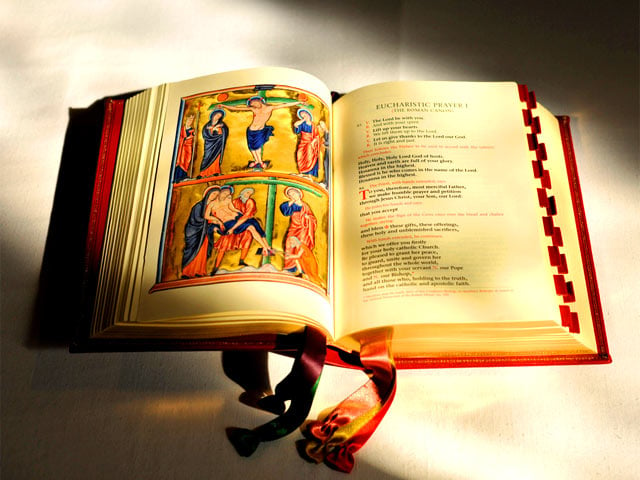- Strona główna
-
Nasza wspólnota
- Archdiocese of Toronto
- Pre-Authorized Giving (P.A.G.)
- Mass Schedules and Devotions
- Donate
- Office Hours
- Catholic Cemeteries
- Parish Forms
- Wolontariat
- Dostępność
- Polityka bezpiecznego środowiska
- Saint Aidan - Our Patron Saint
- Photo Gallery
- Schools in Parish
- Nasza wiara
- Nasze duszpasterstwa
-
Życie parafialne
- Kalendarz wydarzeń
- St. Aidan's Video Links
- Blog Parafialny
- Archiwum wiadomości
- Mass Etiquette and Information
- Ad Orientem News and Facts
- Catholic Links
- Prayers and Announcements
- Luis Dizon Reflections - Archive
- Biuletyn
- Skontaktuj się z nami
- Wyszukaj

The Honour of a Father (Feast of the Holy Family)
Click here for this Sunday’s Readings
The book of Sirach (also known as Ben Sira or Ecclesiasticus) is often classified as “wisdom literature.” One of the hallmarks of that genre is that it contains much practical wisdom that is useful for everyday life, putting it in the same category as the books of Proverbs and Wisdom (although Sirach is notably much longer than these other two). Although it is not in modern Jewish or Protestant biblical canons, it is accepted as Scripture by Catholics and Orthodox, and has been read by the Church since ancient times.1
This section of Sirach, in particular, is an homage to the honour that is due to a father. The reasons for this honour are because of the care that they give to their children. This is why God calls Himself a Father to His children (Isaiah 63:16, 64:8; Malachi 2:10), and is also why the fourth commandment promises long life to those who honour their parents (Exodus 20:12, Ephesians 6:1-3).
Sirach further states that this honour extends even when one’s father is old, since one’s duties do not end when one has grown up and no longer depends on one’s parents (v. 13). He even goes so far as to say that kindness to one’s father atones for sin (v. 14). This is meant to underscore just how vital keeping the fourth commandment really is.
In the Gospels, the ideal model for a father is St. Joseph. Today’s Gospel reading talks about how Joseph leads his family to safety when Herod plans to kill Jesus (Matthew 2:13-23). He shows fatherly care for his wife and the child that has been placed in his care, proving himself to be a perfect example of the fatherly image painted by Sirach.
As we remember the Feast of the Holy Family, let us pray that more fathers will follow the example of St. Joseph, and that we will learn how to honour our fathers better, as Sirach teaches.
J. Luis Dizon
Note
1 It is found in the Greek Septuagint and the Dead Sea Scrolls, and is cited as Scripture by the Babylonian Talmud at numerous points (see Bava Kammah 92b for the most explicit example), which is evidence that some Jews accepted it as Scripture even after the time of Christ. For a more complete defence of the canonicity of Sirach, see the book Why Catholic Bibles are Bigger by Gary Michuta.
